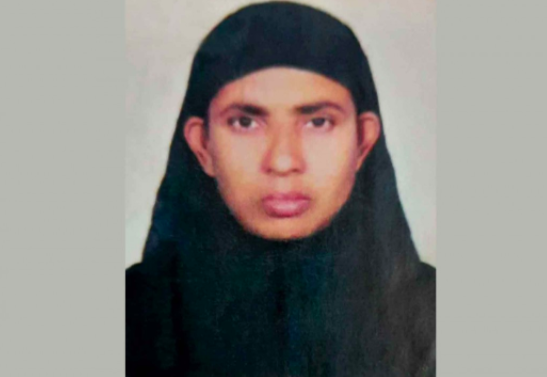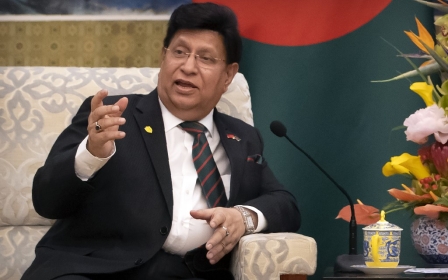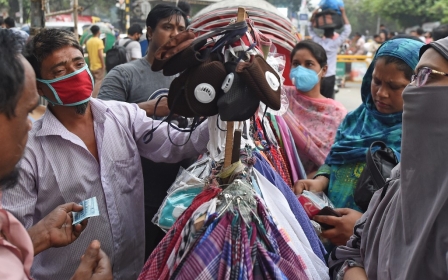Bangladeshi maid's family demands death penalty for Saudis accused of her murder

The family of a murdered Bangladeshi maid has asked a court in Saudi Arabia to hand the three Saudis accused of killing her the death penalty if they are convicted, in a rare trial into abuse of migrant workers in the kingdom.
Abiron Begum Ansar, a 40-year-old domestic worker, was found dead in Riyadh in March 2019, apparently beaten to death by her employers.
Her family said Ansar's body was "unrecognisable" when it was repatriated back to Bangladesh seven months later.
The employers accused of murder are Bassem Salem, his wife Ayesha al-Jizani and their son Walid Basem Salem.
'When her corpse arrived in the country, it was so horrible that we could not look at it'
- Ayub Ali, Abiron Begum Ansar's brother-in-law
During a hearing last week, a criminal court in Riyadh requested Ansar's family submit a written statement detailing whether they wanted the death penalty or financial compensation in the event of a conviction.
New MEE newsletter: Jerusalem Dispatch
Sign up to get the latest insights and analysis on Israel-Palestine, alongside Turkey Unpacked and other MEE newsletters
Documents seen by Middle East Eye show that the family asked the Bangladeshi embassy in Riyadh to request the death penalty, as part of the Qisas legal rules in Saudi Arabia.
Qisas, which can be translated as an "eye for an eye", gives the family of a murder victim the right to ask for compensation from the perpetrators or the death penalty.
The case against Ansar's alleged killers began in December 2020 and the next hearing is set for 20 January.
Prolonged torture
Ansar moved to Saudi Arabia in 2017 to work as a domestic worker in the Salem family's home of eight people.
Ansar's family said she complained that her employer poured hot water on her and pushed the Bangladeshi's face against a metal grill as a form of punishment.
Over the last five years, at least 200 domestic workers have been returned dead to Bangladesh from Saudi Arabia, according to official figures.
Ansar's body was only repatriated after the family sought help from local NGOs.
Ayub Ali, Ansar's brother-in-law, told the Daily Star in Bangladesh that her body "was so horrible that we could not look at it".
"We want harsh punishment for the killers, no compromises, so that no more people die a death like Abiron's," said Ali.
Nomita Haldar, who heads a fact-finding mission into Ansar's death for the Bangladeshi government's National Human Rights Commission, said it was rare to see cases against perpetrators of abuse in Saudi Arabia.
"There is little precedence of trial proceedings against Saudis who abuse their domestic workers," Haldar told the Daily Star.
"I hope Abiron will get justice but it is important that we take appropriate measures to ensure that incidents like this do not happen again."
Middle East Eye delivers independent and unrivalled coverage and analysis of the Middle East, North Africa and beyond. To learn more about republishing this content and the associated fees, please fill out this form. More about MEE can be found here.




